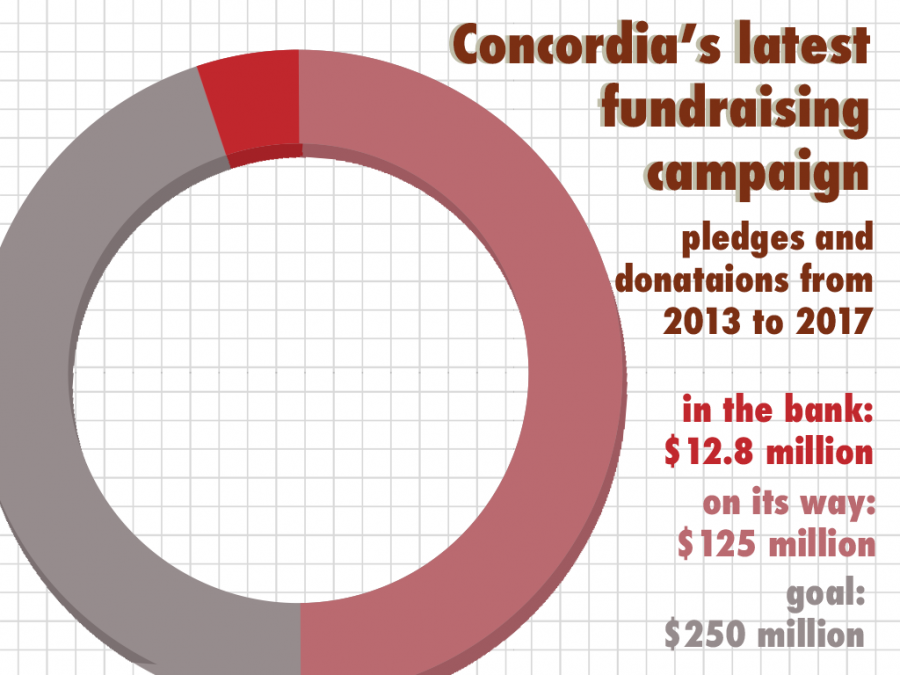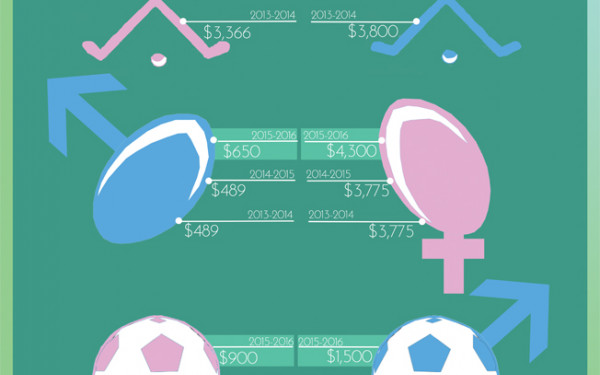Fundraising Brings $125 million to Concordia
First Campaign Under President Alan Shepard Halfway to Goal
The Campaign for Concordia: Next-Gen, Concordia’s newest fundraising campaign has received half of its $250 million goal.
“The campaign is ultimately about being proud as Concordia, and understanding the transformational impact it has on people’s lives, and on the community members we serve,” said Concordia’s president, Alan Shepard.
By the end of April 2016, Concordia had received $12.8 million in donation revenues and gifts, and raised $12.9 million in donation pledges.
The campaign, which started in 2013, is the largest fundraising campaign in Concordia’s history. In early November, Concordia announced that Andrew Molson and Lino Saputo Jr. would be co-chairs of the campaign, as well as play a role in finding donors to fund Concordia’s future research.
“The prestige of the co-chairs helps us with our credibility with future donors,” Shepard said. “What you’re doing is trying to inspire people who have the financial resources to decide that they’re going to spend their dollars at Concordia.”
The Next-Gen campaign is focused on shaping the future of Concordia’s research opportunities and its student body. Shepard said that adding new programs, like chemical engineering, falls in line with Concordia’s strategic direction of “growing smartly.“

Although roughly $125 million has already been pledged, Shepard said that not all the money is already in the bank. Pledges can take up to ten years to arrive, but when the money does arrive, it’s used for scholarships, bursaries, and funding undergraduate research opportunities.
“[The] primary objectives of the campaign are to get our alumni and other friends, corporations, NGOs, [and] anyone else who would like to help Concordia give gifts for future students, faculty and staff,” Shepard said. “So the primary focus is on talent.”
Concordia also uses the donations to supplement the money they receive from the government and tuition. Concordia hasn’t had a surplus in their budget since the 2013-2014 academic year—coinciding with an escalation in austerity measures by the provincial government, which led to budget cuts totalling $36.6 million at Concordia by the 2015-2016 academic year. The university is projecting a deficit of $3.9 million this year.
This is the first fundraising campaign to take place since Shepard’s arrival at Concordia in 2012. The previous campaign had raised $160 million, but according to Shepard, it was never really announced because Concordia’s presidents kept changing.
He added that Concordia already has some money coming in from donations, but it “would be nice to have even more.”

1_900_600_90.jpg)



1_copy_600_375_90_s_c1.jpg)
_600_375_90_s_c1.jpg)
_1_600_375_90_s_c1.jpg)